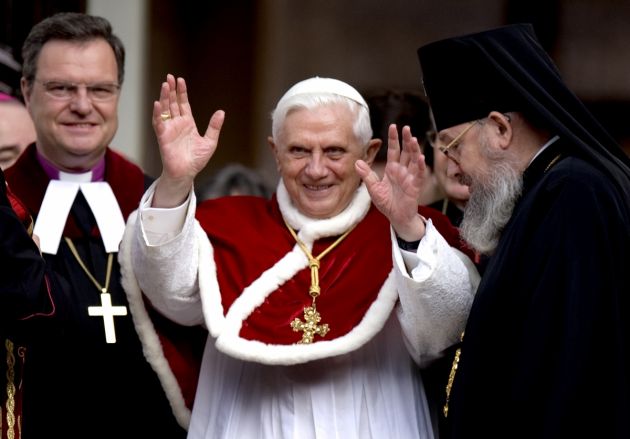Ex-Pope Benedict XVI writes about church's sex abuse crisis, laying blame on the sexual revolution and liberalization of church teaching

Pope Emeritus Benedict XVI has in a rare essay on the sex abuse crisis in the Catholic Church claimed that it was caused in part by the sexual revolution of the 1960s and the liberalization of the church's moral teaching.
The emeritus pope's 11-page essay was published simultaneously in German at Klerusblatt, in Italian at Corriere della Sera, and in English at Catholic News Agency and the National Catholic Register.
The former Pope also reveals some of the behind-the-scenes struggles between the Vatican and American bishops in handling the crisis and admits that the Vatican was initially overwhelmed in dealing with it, CNN reported.
Benedict broke years of silence on major church affairs, attributing the crisis of clerical sexual abuse to a breakdown of church and societal moral teaching and says he felt compelled to assist "in this difficult hour," The Washington Post reported.
"The extent and gravity of the reported incidents has deeply distressed priests as well as laity and has caused more than a few to call into question the very Faith of the Church.
"It was necessary to send out a strong message, and seek out a new beginning, so to make the Church again truly credible as a light among peoples and as a force in service against the powers of destruction," wrote Benedict.
"Since I myself had served in a position of responsibility as shepherd of the Church at the time of the public outbreak of the crisis, and during the run-up to it, I had to ask myself -- even though, as emeritus, I am no longer directly responsible -- what I could contribute to a new beginning," Benedict wrote, in explaining why he is speaking out.
He turns 92 next week and appears to be frail but is in relatively good health.
CNN reported that his comments on the sex abuse crisis seem certain to inflame tensions between conservative Catholics, who largely blame homosexuality and lax sexual ethics for the scandal, and liberals, who say there is no known connection between homosexuality and pedophilia.
In his essay, Benedict asserts that the changes in traditional moral standards on sexuality both in society and within the Catholic Church laid the groundwork for the sex abuse crisis.
"Part of the physiognomy of the Revolution of '68," he writes, "was that pedophilia was then also diagnosed as allowed and appropriate."
Benedict says that this mentality also affected bishops and Catholic seminaries and caused, "the extensive collapse of the next generation of priests."
"There were -- not only in the United States of America -- individual bishops who rejected the Catholic tradition as a whole and sought to bring about a kind of new, modern Catholicity," he writes.
"In various seminaries homosexual cliques were established," he writes, "which acted more or less openly and significantly changed the climate in the seminaries."
Benedict cites one bishop who showed seminarians pornographic films, "allegedly with the intention of thus making them resistant to behavior contrary to the faith."
.As word of Benedict's essay spread, conservative Catholics hailed it, while others called it "embarrassing" according to CNN.
A top Vatican official confirmed the essay's authenticity to CNN.
Since his made history by stepping down in 2013, Benedict has rarely left his monastery high on a hill in Vatican City.
In his farewell address as pope, Benedict promised to stay "hidden" from the world, though he has spoken out occasionally on church matters.